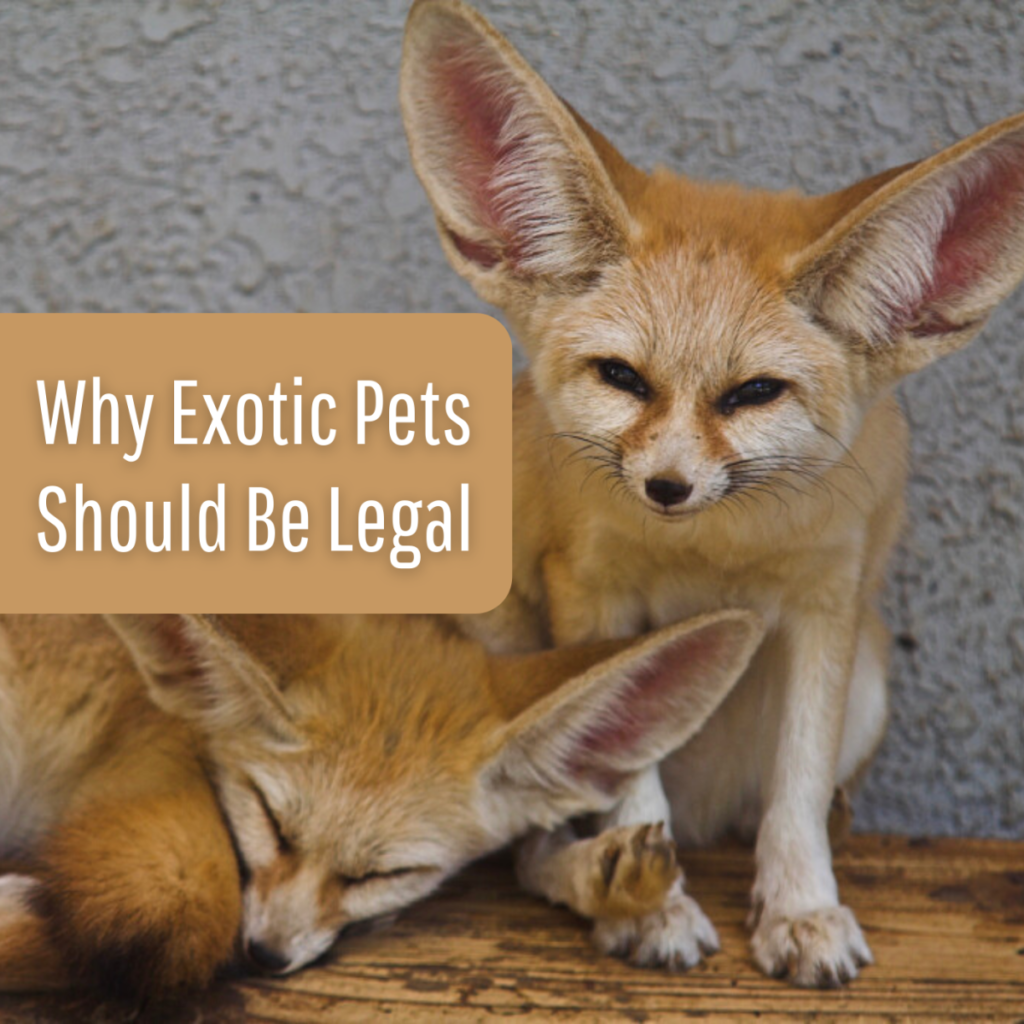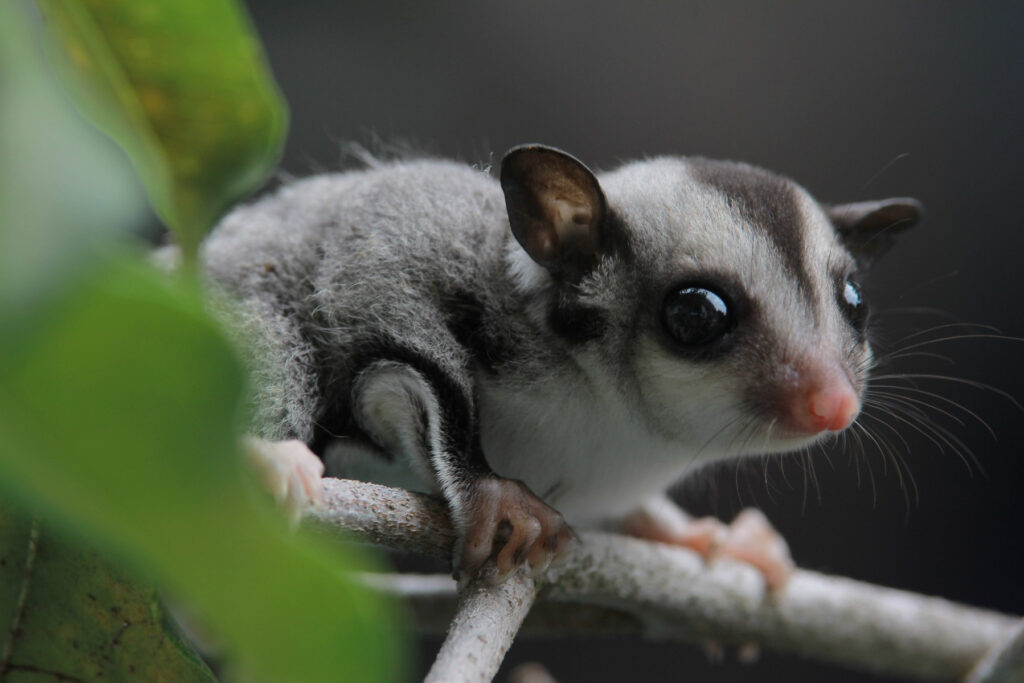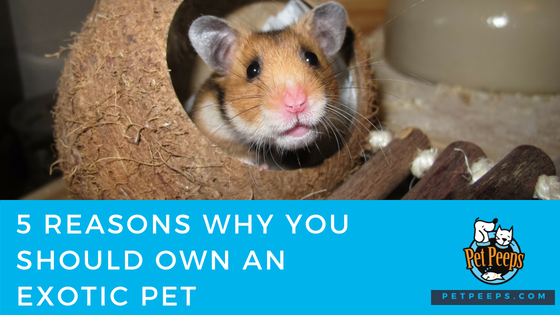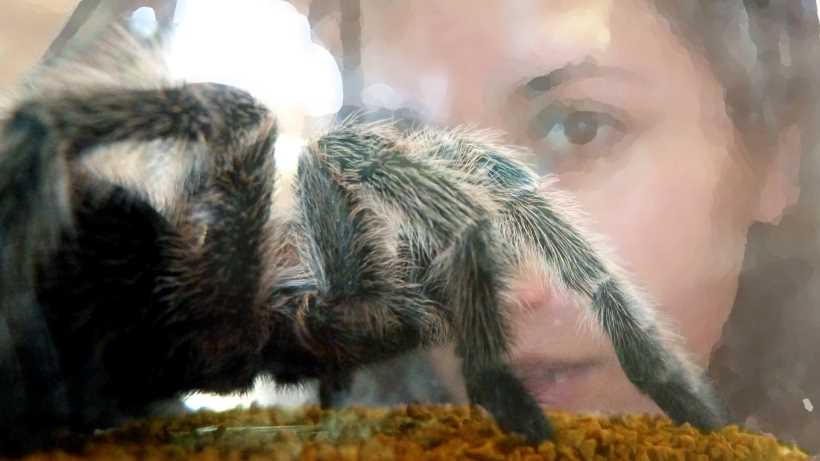
So, you’re wondering why exotic animals should be pets? Well, buckle up because we’re about to take a closer look at this controversial topic. From curious critters to stunning reptiles, the allure of having an exotic pet has captivated many. But do these animals truly belong in our homes? In this article, we’ll explore the fascinating reasons why some argue in favor of having exotic animals as pets, and delve into the potential risks and concerns associated with this unique form of companionship. Get ready to challenge your perspective on what it means to be a pet owner.
Defining ‘Exotic’ Pets
Meaning of ‘exotic’ in pet terminology
When we talk about exotic pets, we are referring to animals that are not commonly kept as pets. These animals may come from different regions of the world and have unique characteristics that make them stand out from typical domesticated animals. The term ‘exotic’ in the context of pets is often associated with species that are rare, unusual, or require specialized care.
Examples of exotic pets
There is a wide range of exotic pets that people choose to own. Some of the most common examples include reptiles like snakes, lizards, and turtles. Exotic birds such as parrots, macaws, and cockatoos are also popular choices. In addition, small mammals like ferrets, sugar gliders, and hedgehogs fall into the category of exotic pets. Other examples include amphibians like frogs and salamanders, as well as various species of insects and arachnids. These animals offer an opportunity for pet owners to experience the diversity of the animal kingdom firsthand.
Laws and Regulations for Exotic Pet Ownership
Differences in regulation across countries
The laws regarding exotic pet ownership can vary significantly from one country to another. Some countries have strict regulations that prohibit or heavily restrict the ownership of certain exotic animals due to concerns about public safety, animal welfare, and the potential impact on native ecosystems. On the other hand, some countries have more lenient regulations that allow a wider range of exotic pets to be kept legally. It is essential for potential exotic pet owners to familiarize themselves with the specific laws and regulations in their region to ensure they are in compliance.
Examples of strict and loose exotic pet laws
In the United States, for instance, some states have strict laws that ban or heavily regulate the ownership of certain exotic animals. For example, keeping big cats like lions and tigers as pets is illegal in most states. In contrast, states like Texas have more lenient laws that permit the ownership of a wider range of exotic animals. Similarly, countries such as Australia have stringent regulations to prevent the introduction of exotic species that could jeopardize the unique biodiversity of the country, while others like Canada have more relaxed laws that vary by province.

This image is property of images.saymedia-content.com.
Benefits of Owning Exotic Pets
Unique behavioral patterns of exotic pets
One of the main appeals of owning an exotic pet is the opportunity to observe and interact with animals that have fascinating and often unique behavioral patterns. For example, reptiles like bearded dragons may display intricate social behaviors, while certain bird species such as cockatoos are renowned for their advanced communication skills. The ability to witness these behaviors up close can provide a sense of wonder and appreciation for the diversity of the animal kingdom.
Potential for forging strong pet-owner bonds
Owning an exotic pet can also lead to the development of strong and lasting bonds between the owner and the animal. Unlike traditional pets such as dogs or cats, exotic pets often require specialized care and attention, which can create a deeper sense of connection between the owner and the animal. This bond can be particularly rewarding because exotic pets may exhibit loyalty, trust, and affection in unique and unexpected ways.
Therapeutic benefits
Numerous studies have shown the therapeutic benefits of animal companionship, and owning an exotic pet can provide similar advantages. Exotic pets can offer emotional support and companionship to their owners, reducing stress and promoting overall well-being. The process of caring for an exotic pet, such as feeding, grooming, and providing environmental enrichment, can also promote a sense of purpose and fulfillment.
Educational opportunities
Owning an exotic pet can provide valuable educational opportunities for both children and adults alike. Exotic pets often require specialized knowledge and understanding of their unique needs, which encourages owners to learn about different habitats, diets, and behaviors. This educational aspect can foster a greater appreciation for nature, wildlife conservation, and responsible pet ownership.
Challenges in Owning Exotic Pets
Difficulty in meeting specific needs
One of the major challenges of owning an exotic pet is the difficulty in meeting their specific needs. Exotic animals often have complex dietary requirements, specific temperature and humidity needs, and require specialized habitat setups. Providing the appropriate conditions and maintaining them can be time-consuming and costly, as it may involve the use of specialized equipment and the constant monitoring of environmental factors.
Potential dangers and liability issues
While exotic pets can be fascinating and enjoyable to have, some species pose potential dangers both to their owners and the public. Animals such as large constrictor snakes or venomous reptiles can present a safety risk if not handled and contained properly. Additionally, there may be liability issues if an exotic pet escapes or injures someone, leading to legal consequences for the owner. It is crucial for exotic pet owners to prioritize safety and take precautions to prevent accidents or incidents.
Risk of zoonotic diseases
Exotic pets have the potential to carry and transmit zoonotic diseases, which can affect not only the animals themselves but also their owners. These diseases can range from bacterial or viral infections to parasites that can be transferred through bites, scratches, or contact with bodily fluids. Proper hygiene practices, regular veterinary check-ups, and appropriate preventive measures are necessary to minimize the risk of zoonotic diseases.

This image is property of www.worldanimalprotection.us.
Exotic Animals and Their Environmental Impact
Influence on local biodiversity
When exotic animals are introduced into environments where they are not native, they have the potential to disrupt local ecosystems and impact native wildlife. Exotic pets that escape or are released into the wild can become invasive species, outcompeting or preying upon native species, leading to population declines or even extinctions. The unintended consequences of exotic pet ownership on local biodiversity highlight the importance of responsible pet ownership, including not releasing animals into the wild.
Risks of introducing exotic pets into a new ecosystem
The introduction of exotic pets into a new ecosystem can have far-reaching consequences. In some cases, exotic pets that are intentionally or unintentionally released can establish breeding populations, becoming invasive species. These invasive species can negatively impact native ecosystems, disrupting food chains, altering habitats, and creating imbalances in predator-prey relationships. Preventing the introduction of exotic pets into new ecosystems is crucial for preserving the integrity of local habitats.
Ethical Questions Surrounding Exotic Pet Ownership
Animal welfare considerations
The ethical considerations surrounding exotic pet ownership are complex and multifaceted. While some exotic pets can thrive in captivity and exhibit favorable welfare states, many species may experience compromised well-being due to the challenges of meeting their specific needs. Concerns include limited space for natural behaviors, lack of social interaction, improper diet, and stress from captivity. It is essential for potential exotic pet owners to thoroughly research the specific needs of the species they are interested in and ensure they can provide a suitable and enriching environment.
Debate on wild vs. domesticated animals as pets
There is an ongoing debate regarding whether it is more ethical or appropriate to keep wild or exotic animals as pets compared to domesticated species. Supporters argue that exotic pet ownership can promote conservation efforts, contribute to scientific research, and raise public awareness and appreciation for lesser-known species. However, critics argue that wild animals should be allowed to live in their natural habitats to maintain their physical and psychological well-being. They argue that conservation efforts should focus on protecting natural habitats and providing support for wildlife sanctuaries rather than individual ownership.

This image is property of petpeeps.biz.
Improving Exotic Pet Ownership Practices
Adequate research before adoption
Before bringing an exotic pet into your life, it is crucial to conduct thorough research about the species’ specific needs, behaviors, and long-term care requirements. Understanding the level of commitment, space, and resources necessary for the animal’s well-being is essential. Researching reputable sources, consulting with experts, and connecting with experienced exotic pet owners can provide valuable insights and guidance in making an informed decision.
Ensuring proper care and habitat for pets
Once an exotic pet is adopted, it is the owner’s responsibility to ensure their well-being by providing a suitable living environment and appropriate care. This includes consistent access to proper nutrition and hydration, appropriate socialization opportunities, and environmental enrichment to prevent boredom and encourage natural behaviors. Regular veterinary check-ups and proactive health management are also essential for the overall welfare of the animal.
Case Studies of Successful Exotic Pet Ownership
Examples of celebrities with exotic pets
Many celebrities have expressed their love for exotic pets and have successfully cared for them. For instance, actress and model Megan Fox owns several exotic pets, including two pigs and a squirrel. Actor Leonardo DiCaprio has been an advocate for wildlife conservation and has supported various initiatives to protect endangered species. His foundation, the Leonardo DiCaprio Foundation, has invested in projects aimed at preserving habitats and wildlife worldwide.
Stories of everyday people and their exotic pets
There are numerous heartwarming stories of everyday people forming deep connections with their exotic pets. Some individuals have dedicated their lives to rescuing and rehabilitating exotic animals, providing them with a loving and nurturing environment. These stories exemplify the potential for positive experiences and relationships between exotic pets and their owners when responsible care is provided.

This image is property of netivist.org.
Exotic Pet Market: Buying and Selling
Accommodating exotic pet’s specific needs
The exotic pet market plays a role in meeting the demand for these unique animals. However, it is crucial for both buyers and sellers to prioritize the well-being and welfare of the animals involved. It is essential to ensure that the housing conditions, transportation methods, and overall treatment of the animals are humane and align with their specific needs. Laws and regulations should be in place to prevent unethical practices and protect the rights of the animals involved.
The role of breeders and sellers
Breeders and sellers of exotic pets play a significant role in the accessibility and availability of various species. Responsible breeders prioritize the health and welfare of the animals they produce, ensuring appropriate breeding, socialization, and genetic diversity. When seeking to purchase an exotic pet, it is important to research and choose reputable breeders or sellers who adhere to ethical standards and prioritize the well-being of the animals.
Checking pedigree and health status before purchase
When considering purchasing an exotic pet, it is essential to thoroughly research the breeder or seller and ask specific questions about the animal’s pedigree, origin, and health status. Reputable breeders or sellers should be transparent about the animal’s history and provide accurate information regarding its genetic background, medical history, and any potential health issues. Obtaining this information is crucial in making an informed decision and ensuring the well-being of the animal.
Taking Care of Exotic Pets: A Comprehensive Guide
Understanding dietary needs
Each species of exotic pet has unique dietary requirements that must be met to ensure their health and well-being. This can range from a specific variety of fruits, vegetables, or proteins to mimic their natural diet in the wild. It is crucial to research and consult with experts to determine the appropriate feeding regimen and provide a balanced and nutritious diet for the exotic pet.
Providing appropriate living conditions
Exotic pets require specific living conditions tailored to their natural habitat and behavioral needs. Temperature, humidity, lighting, and space considerations are necessary to create a suitable environment for the animal. This may involve designing an enclosure that allows for climbing, burrowing, or swimming, depending on the species. Providing suitable habitat enrichment, such as natural substrates, hiding places, and environmental stimuli, is also essential for promoting mental and physical well-being.
Handling and socializing exotic pets
Proper handling and socialization techniques are crucial for exotic pets to develop healthy relationships with their owners and minimize stress. Each species has different comfort levels with handling, and it is important to respect their boundaries and provide positive experiences. Socialization can include supervised interactions with other individuals or animals of the same species to prevent loneliness and encourage natural behaviors. It is vital to research appropriate handling techniques for each species and seek guidance from experts to ensure the safety and well-being of both the animal and the owner.
In conclusion, owning an exotic pet can offer unique experiences and opportunities for connection with the animal kingdom. However, it is crucial to approach exotic pet ownership with responsibility, educating oneself on the specific needs and challenges associated with the chosen species. This ensures the physical and psychological well-being of the animals and contributes to the conservation of wildlife and their habitats. With informed decision-making and proper care, the benefits of owning exotic pets can be realized while minimizing potential negative impacts.






